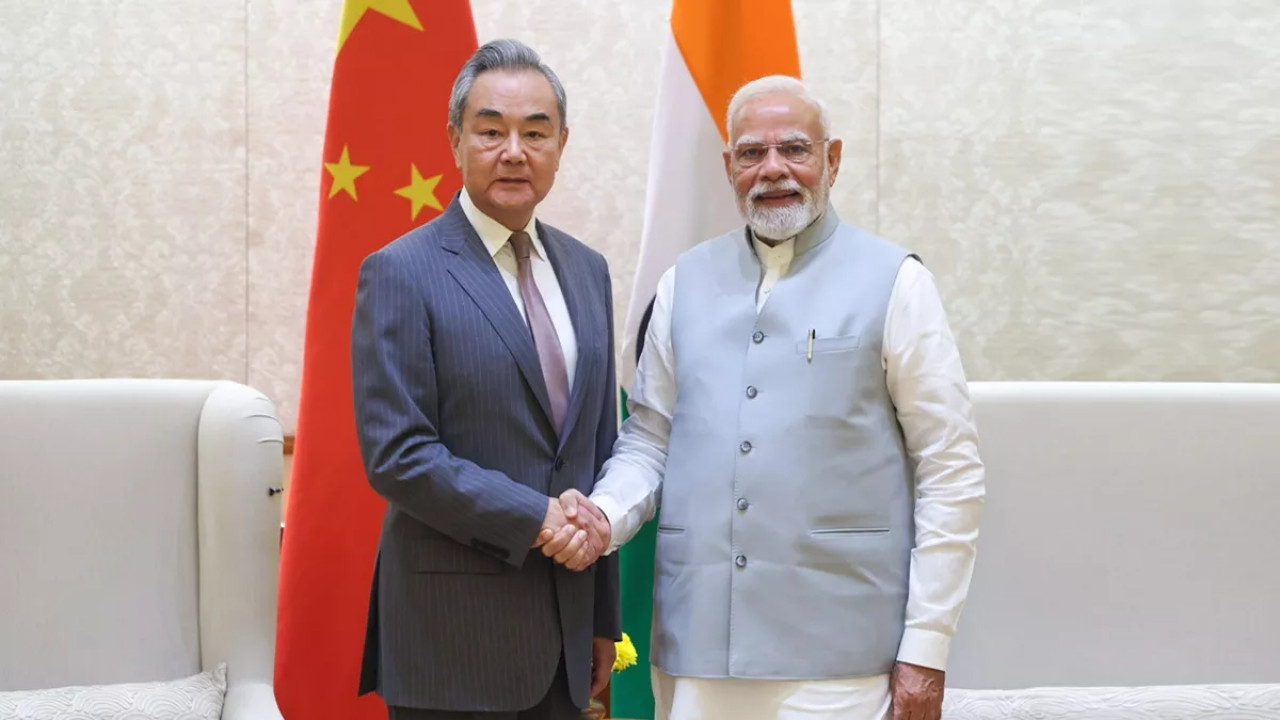
Historical day for India-China relations (Social media)
National News: Tuesday turned out to be a historic day for India-China relations, especially after the bitterness that followed the 2020 Galwan clash. Chinese Foreign Minister Wang Yi visited India and held crucial talks with National Security Adviser Ajit Doval. The meeting, which was part of the 24th round of Special Representative-level discussions, led to several significant decisions aimed at rebuilding trust and improving ties between the two nations.
One of the key outcomes was the decision to form a special expert group under the Working Mechanism for Consultation and Coordination (WMCC). This team will work on finding a solution to the long-pending issue of boundary settlement. Both sides agreed that stability along the Line of Actual Control (LAC) is essential for progress in other areas of cooperation.
Another major breakthrough was the agreement to restart direct flights between major cities of both countries. Along with this, border trade through Lipulekh Pass, Shipki La, and Nathu La will also be reopened soon. This move is expected to help local communities and improve economic ties. The two sides also decided to make it easier for tourists, businesspersons, journalists, and other visitors by streamlining the visa process.
Earlier, Wang Yi also met External Affairs Minister S. Jaishankar. During this meeting, China assured India that it would address three major economic concerns. These include ensuring an uninterrupted supply of fertilizers, restarting the supply of rare earth magnets, and resuming exports of tunnel-boring machines needed for large infrastructure projects.
India has been heavily dependent on China for rare earth magnets, which are vital for automobile manufacturing, electronics, and renewable energy technologies. The shortage of these materials had negatively impacted several Indian industries. Similarly, the delay in the supply of heavy machinery from China had slowed down important road and airport construction projects. China’s assurance has therefore come as a major relief for India.
Ajit Doval pointed out that the meeting between Prime Minister Narendra Modi and Chinese President Xi Jinping in Kazan last year had played a crucial role in reviving the dialogue process. He also highlighted that the last nine months along the border have been relatively peaceful, giving both countries space to rebuild trust. Doval also confirmed that Prime Minister Modi will soon be visiting China, where he is expected to attend the Shanghai Cooperation Organization (SCO) summit in Tianjin.
The recent developments come after a difficult phase in bilateral trade. In April 2025, the Trump administration in the US imposed restrictions on imports from several countries, including India and China. In response, Beijing tightened its own export policies, especially on rare earth metals and fertilizers. This has created severe challenges for India, which relies on China for several key resources.
Wang Yi admitted that the friction in recent years had not been in the interest of either side. He stressed that it was time to rebuild confidence and strengthen cooperation. He also described Prime Minister Modi’s upcoming visit to China as extremely important for the future of bilateral relations.
With agreements on trade, flights, and border stability, the latest talks mark a turning point in India-China relations. Both nations now seem ready to leave behind years of distrust and focus on practical cooperation.





Copyright © 2026 Top Indian News
